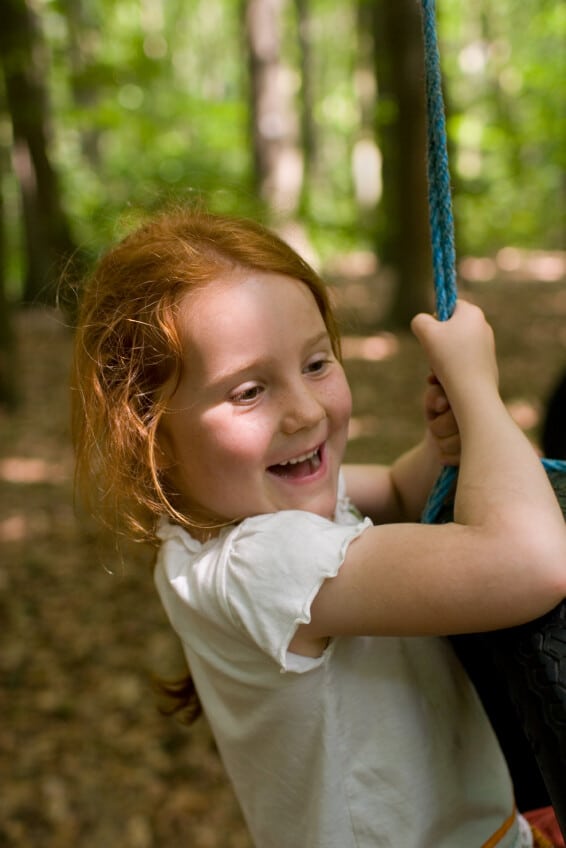Gaining the courage to do things is an art that the child can attain with practice. This is a double-edged sword in a way. One needs to attempt difficult tasks to become more self-reliant. This is one area where you can help in a big way. Identify the fears that your child has and describe small tasks for him to do.
Dr. Caron Goode
Facing the World with Confidence – a lesson in parenting
“I want to go to the bathroom, mommy,” said little Annabelle.
‘The door is open, sweetie. Why don’t you go yourself?” said her mother.
“Its dark in there and monsters come up from the drains.”
“Don’t be silly, Ann! You know there are no monsters. When will you start behaving like a grownup?”
Embarrassed by her mother’s comments, Annabelle moved slowly towards the bathroom door. She could not make herself go inside the dark black room and urinated in the hallway. More embarrassment and admonitions followed.
This is a perfect example of how not to handle your children’s fear and tribulations. Younger children live in their feelings, which are amplified by the external factors like darkness and an active imagination. To gain confidence to move through the fears means
- Establishing a safety net for the child with your presence, nurturing reassurance and empathy.
- Walking through the steps to face those fears together.
Gaining the courage to do things is an art that the child can attain with practice. This is a double-edged sword in a way. One needs to attempt difficult tasks to become more self-reliant. This is one area where you can help in a big way. Identify the fears that your child has and describe small tasks for him to do. If you know he is afraid of the dark, take your child’s hand and go into the room. Stand there without the lights on and comfort the child, explaining that fear is good and you’ll face it together. Crossing these tiny hurdles will slowly ensure that the fear of dark vanishes over time. However, be careful about not pushing your child when he is not ready. If you see signs of panic or withdrawal, take a step back and start again from the child’s safety zone.
The situations will change as your child grows older, but the need for confidence to face them is still there: a strict teacher, peer pressure, need for achievement, peer rejection. At later ages, every decision a child makes is filtered through their value system. If a child values herself, she may have a strong sense of her character. Values clarification and clear communication help children walk through any adversity:
- Identify the problem.
- Think through options.
- Always identify consequences of each option.
- Listen in silence without trying to fix.
- Teach them how to assert themselves if that is needed.
- Appreciate their interests and efforts.
The key in helping your children gain self-confidence is empathize and see their perspective at all times when dealing with them. Understand that these issues are as critical to them as losing a job might be to you.
For the older kids, ensure a time for conversing about their concerns, fears, opportunities, and challenges. These talks might give you an idea of what fears your child is facing in everyday life. These could be related to a bully in school, an irate teacher, peer pressure and much more that life will bring.
When your child overcomes his fear and achieves something, like petting a dog he was otherwise afraid of or firmly tells his classmates that he will not tell a lie to the teacher, she demonstrates self-confidence.
Make sure you notice. Comment positively in some way. Insure that you appreciate the behavior. The sense of achievement that ones gains from overcoming fear is indeed the best motivating factor when a caring parent notices and reinforces that confidence.
Remember that self-confidence is nurtured in a caring and comforting environment. So ensure that you hold your child’s hand all the way in the path leading to a self-confident and self-reliant adult.
Caron’s entrepreneurial fun takes place at the Academy for Coaching Parents International which provides training and certification for students to operate Parent Coaching businesses. As a mother and stepmother, Caron knows firsthand the importance of parenting skills and that nurturing children with joy, common sense, and connectedness enriches and benefits both parent and child. Her newest book is Help Kids Cope with Stress and Trauma. Her expertise has made her a frequent media expert and her work has appeared in Colorado Parent, Convergence, The Joyful Child, Energy, Black Family Digest, and Better Homes and Gardens. She and her husband Tom Goode, ND, live in Ft. Worth Texas.
EDUCATION
Post Doctoral Work: (1996-1998) Institute of Transpersonal Psychology; focus on Women’s Psychology and on Wellness
Doctorate of Education: (1979-1983) The George Washington University, My degree is in Counseling Psychology, with the major, Human Development and Leadership and a minor in Special Education.
Masters of Communication: (1972-73) Our Lady of the Lake University, San Antonio TX. Major was language and minor was learning disabilities.
Bachelor of Science: (1971) Oklahoma University of Liberal Arts, Major was Speech Therapy and Deaf Education.
No part of this article may be copied or reproduced in any form without the express permission of More4Kids © and All Rights Reserved













Add Comment